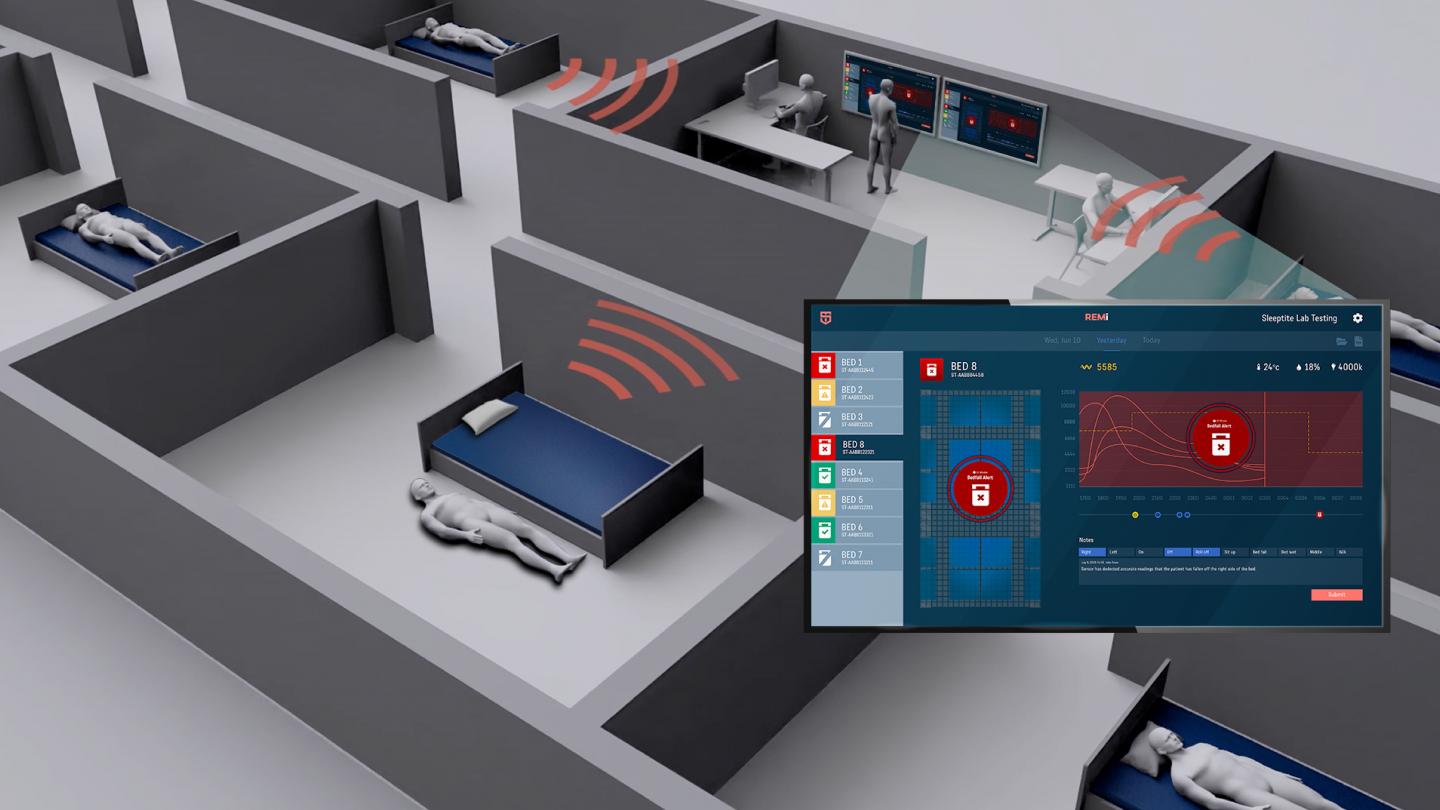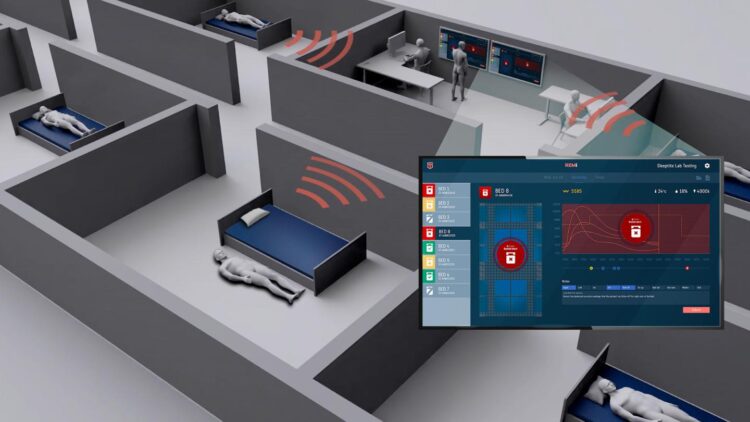New smart monitoring system features innovative sensor tech developed by RMIT University

Credit: Sleeptite
Pioneering technology that can deliver real-time and non-invasive resident monitoring and alerts for the aged care industry has been unveiled.
The world-first smart monitoring system, REMi, featuring sensor technology developed by RMIT University, has been launched by Australian research and advanced manufacturing company Sleeptite.
REMi sees fundamental research taken from the labs of RMIT and translated into a commercial outcome, supported by an Australian Government Cooperative Research Centres – Project (CRC-P) grant.
Australian Minister for Industry, Science and Technology, Karen Andrews, joined Sleeptite at their Melbourne test facility and manufacturing home for the launch and to learn more about the next phase for the technology – aged care field trials and an advanced manufacturing push.
“Innovative partnerships like this between researchers and industry are crucial to solving problems and then translating them into commercial outcomes,” Andrews said.
Integrated sensing and data platform
REMi is a three-part system comprising of flexible sensors integrated into a medical grade mattress cover, the backend platform that analyses the data and the front-end user interface delivering valuable insights for the aged care workforce.
Setting the REMi system apart from existing aged care monitoring devices are two world-first advancements:
- flexible and stretchable sensors that can monitor movement and vital signs when embedded in materials sitting external to the human body, developed by RMIT; and
- the advanced manufacturing equipment and processes, developed by Sleepeezee Bedding Australia, required to take the sensors made in a laboratory environment and mass produce them at scale for use in the real world.
Sleeptite CEO Cameron van den Dungen said the system gave the aged care sector the opportunity to both increase the quality of healthcare they offer and the quality of residents’ lives, through technology.
“Technology like Sleeptite’s REMi not only supports the valuable care workers but enables them to provide greater care than they believe is possible,” van den Dungen said.
“REMi takes the data that we extract from the person, from the environment in an aged care bedroom – whether it’s at home or whether it’s in a facility – and sorts out what is valuable to the user that needs that information.
“Whether it’s the carers wanting to know that whenever their attention is turned they have a safety net behind them monitoring all residents, or their loved ones wanting to feel reassured at all times, or a CEO, or a board making a decision based on benchmark of care or the standard of care in multiple sights.”
Professor Madhu Bhaskaran, co-leader of the Functional Materials and Microsystems Research Group at RMIT, said the collaboration was a model for deep engagement between universities and industry.
“REMi shows the power of true partnership and the extraordinary results we can achieve through a collaboration built on mutual respect and clear, shared goals,” Bhaskaran said.
“We’ve gone from lab bench to commercialisation in just three years – solving myriad challenges along the way – to deliver smart home-grown tech that will be manufactured right here in Australia.
“It’s incredibly exciting to see the sensor we developed leaping out from our lab and into the world, to improve the care of some of our most vulnerable people.”
Advanced monitoring and care
REMi has been designed to enable the aged care workforce to non-intrusively monitor residents during the night and receive alerts at critical moments such as if a resident falls, or is at risk of falling.
Using the technology, carers will be able to determine not only the presence or absence of a person in bed, but also vital information about their position on the mattress.
This allows them to detect signs of abnormality or potential health risks, such as their state of sleep or distress, as well as providing valuable insights in the understanding or prevention of falls.
REMi can provide macro-data to facility mangers ensuring that quality care can be benchmarked and easily monitored and that facilities can easily, accurately and scientifically provide evidence of quality care to regulatory bodies, government and families.
Further testing is already proving that the technology is also able to monitor more health parameters including respiratory and heart rate readings, with future developments to be added as field trials begin in coming months.
Collaborative partnerships
RMIT Deputy Vice-Chancellor Research and Innovation and Vice-President, Professor Calum Drummond, said strong partnerships with industry were at the heart of RMIT research.
“Our goal is to bridge the gap between research and impact, for the benefit of our communities,” Drummond said.
“It’s through these kinds of deep collaborations that we can accelerate the translation of university research into new technologies and play a critical role in boosting Australia’s sovereign capability, to help drive our economic recovery.”
Bill Mantzis, Managing Director Sleepeezee Bedding Australia, said advanced manufacturing techniques would ensure Australia’s global competitiveness and generate demand for local jobs.
“Companies that invest in innovation, research and development of new technologies and ideas will set the scene for the (manufacturing) industry and the industries for whom they are developing products,” Mantzis said.
###
Media Contact
Gosia Kaszubska
[email protected]





